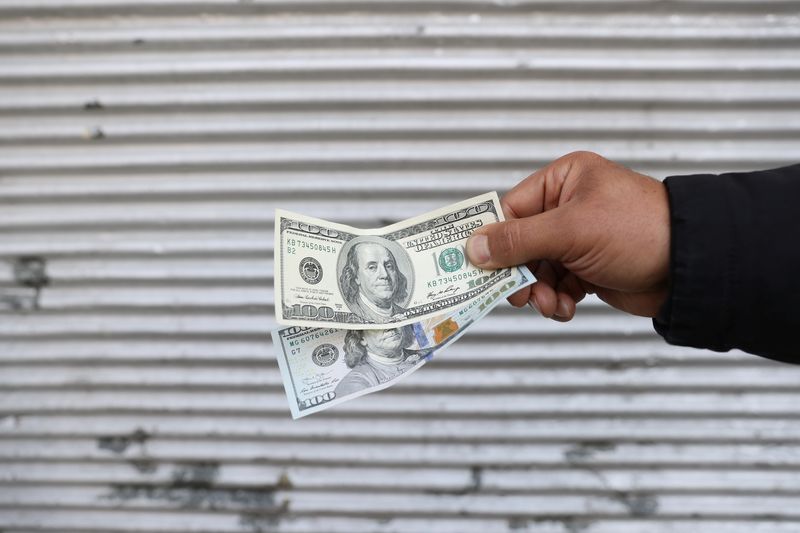Welcome to Sika. Technologies
Why Dollar Rates Are a Problem in Ghana and Nigeria’s Economy

Why Dollar Rates Are a Problem in Ghana and Nigeria’s Economy
The exchange rate of the U.S. dollar has long been a major concern in Ghana and Nigeria, impacting economic stability, inflation, and the purchasing power of citizens. Fluctuating dollar rates significantly affect businesses, individuals, and governments, making financial planning difficult. However, innovative financial solutions, such as digital banking and fintech-driven remittance services, can play a crucial role in addressing these challenges.
Causes of High Dollar-to-Local Currency Rates
- Trade Imbalance (High Import Dependence vs. Low Exports)
Ghana and Nigeria rely heavily on imports for essential goods such as fuel, machinery, and food products. Since these goods must be purchased in foreign currencies (mostly U.S. dollars), there is a high demand for dollars, pushing up exchange rates. Meanwhile, exports, such as oil and agricultural products, often do not generate enough dollar inflows to balance this demand.
- Declining Foreign Reserves
Both countries rely on their central banks to manage exchange rate fluctuations using foreign currency reserves. When reserves deplete due to high demand for forex or falling export revenues, governments struggle to support the local currency, leading to further depreciation.
- Oil Price Fluctuations
Nigeria, in particular, is heavily dependent on crude oil exports for foreign exchange earnings. When global oil prices drop, Nigeria earns fewer dollars, reducing forex availability and causing the naira to depreciate.
- Inflation & Currency Devaluation
High inflation erodes the value of local currencies. As prices of goods and services rise, the purchasing power of the cedi and naira weakens, making the dollar more expensive in comparison.
- Speculative Forex Trading & Hoarding
Due to currency instability, businesses and individuals tend to buy and hold dollars as a safeguard against depreciation. This speculative behavior increases demand for dollars, further driving up exchange rates.
- Foreign Debt & Capital Flight
Many African governments borrow in U.S. dollars to fund infrastructure and social projects. When loan repayments become due, countries need large amounts of dollars, increasing demand. Additionally, foreign investors sometimes pull their investments from local markets due to economic uncertainty, further reducing the supply of dollars.
- Political & Economic Uncertainty
Investor confidence is crucial for currency stability. Political instability, poor economic policies, and weak governance structures often scare away foreign investors, leading to capital flight and increased dollar demand.
- High Cost of Doing Business & Regulatory Bottlenecks
Many multinational companies operating in Ghana and Nigeria repatriate their profits in dollars, reducing forex reserves. Additionally, complex and inconsistent regulations make it difficult for foreign businesses to invest long-term, reducing dollar inflows.
How Neobank Can Solve These Challenges
A neobank—powered by fintech innovation—can provide a digital-first approach to solving many of the forex-related issues affecting Ghana and Nigeria’s economies.
- Multi-Currency Accounts for Exchange Rate Protection
A neobank can allow users to hold funds in multiple currencies, including the U.S. dollar, euro, and local currency. This feature helps individuals and businesses hedge against currency depreciation by keeping their money in a more stable currency until they need to make transactions.
- Affordable and Transparent Forex Transactions
Unlike traditional banks that impose high fees and unfavorable rates, a neobank can offer competitive exchange rates for forex transactions. With AI-powered exchange rate predictions and real-time forex tracking, users can convert their money at the best possible rates with minimal fees.
- Instant, Low-Cost International Remittances
Many Ghanaians and Nigerians rely on remittances from family members abroad. A neobank can provide a cost-effective alternative to traditional remittance services, offering near-instant money transfers with minimal fees, eliminating the need for expensive middlemen.
- Access to Digital Dollar Accounts
A digital bank can offer dollar-based savings and investment accounts, allowing users to save in a more stable currency while earning competitive interest rates. This protects individuals and businesses from inflation and currency depreciation.
- Cross-Border Payment Solutions for Businesses
A fintech-driven neobank can enable seamless international payments for businesses, allowing them to pay suppliers and partners without excessive fees or delays. By integrating blockchain or digital ledger technology, transactions can be more transparent and efficient.
- Encouraging Digital Financial Inclusion
With the rise of mobile banking and fintech services, more people can access financial tools that were previously unavailable through traditional banking institutions. A neobank can bridge the gap by providing financial services tailored to the needs of both urban and rural populations, ensuring financial inclusion at scale.
- Reducing Dependence on Physical Cash & Speculative Forex Trading
By promoting digital transactions, a neobank reduces the reliance on physical cash, which is often subject to hoarding and black-market speculation. This can help stabilize local currency demand and reduce the pressure on the forex market.
The instability of dollar rates remains a significant challenge in Ghana and Nigeria, affecting businesses, households, and economic growth. However, the rise of neobanks presents a unique opportunity to tackle these challenges head-on. By offering innovative financial solutions such as multi-currency accounts, affordable forex services, instant remittances, and digital savings tools, a neobank can empower individuals and businesses to navigate the complexities of currency volatility more effectively.
Through fintech-driven solutions, a digital bank can bring stability, financial inclusion, and greater economic control to millions of people across Africa, helping them protect their wealth and thrive in an ever-changing global economy.
